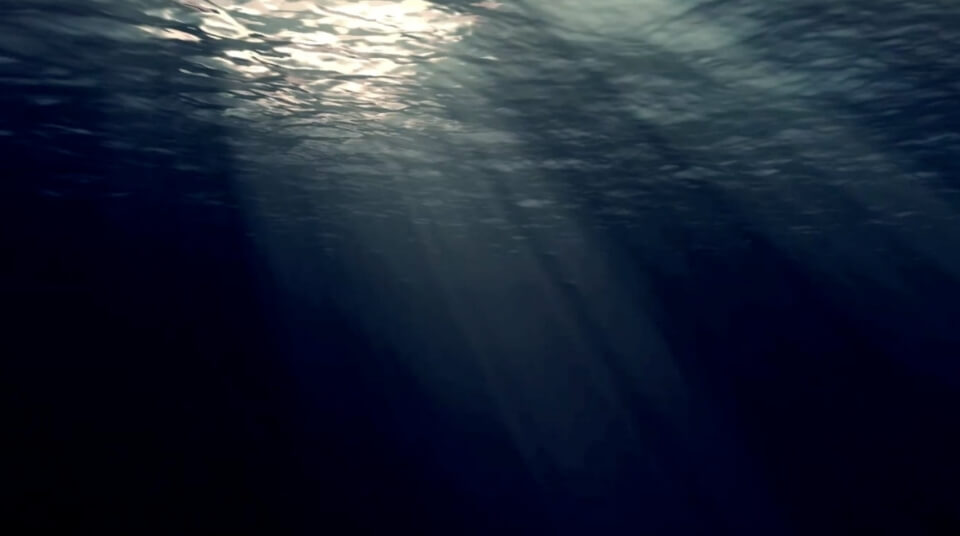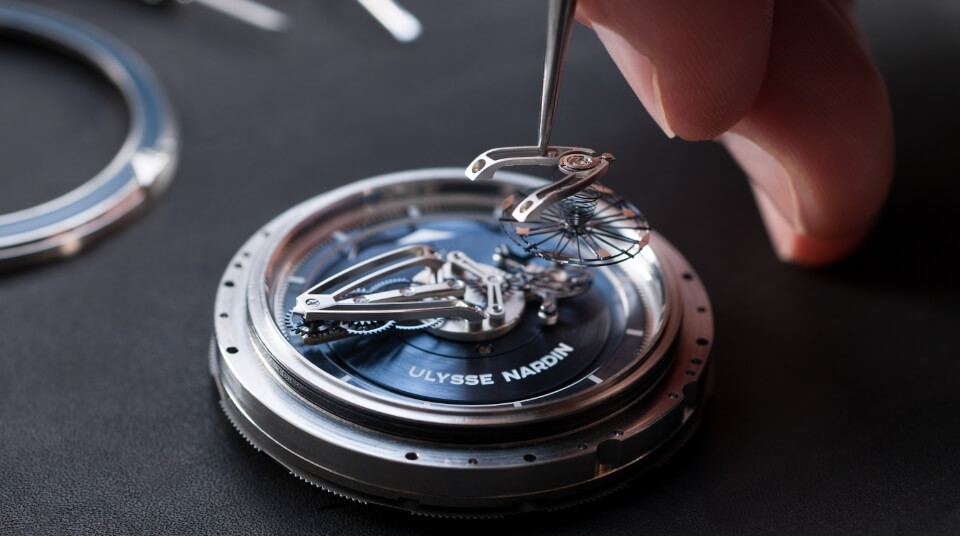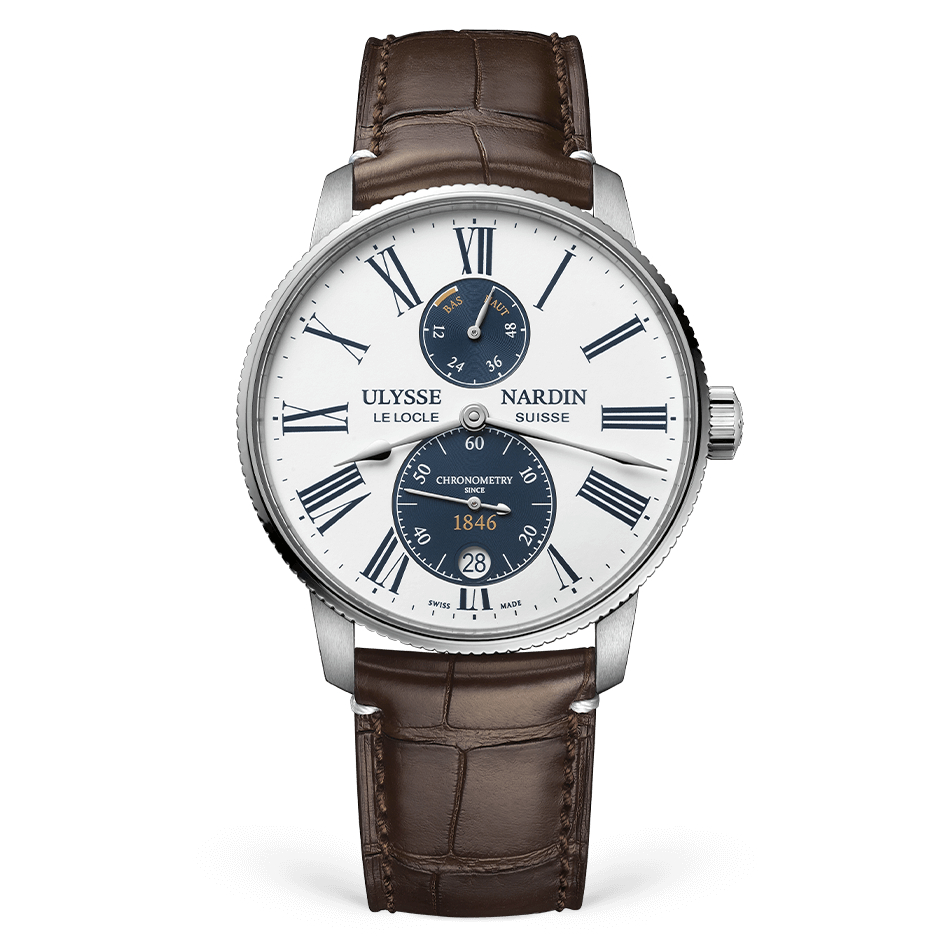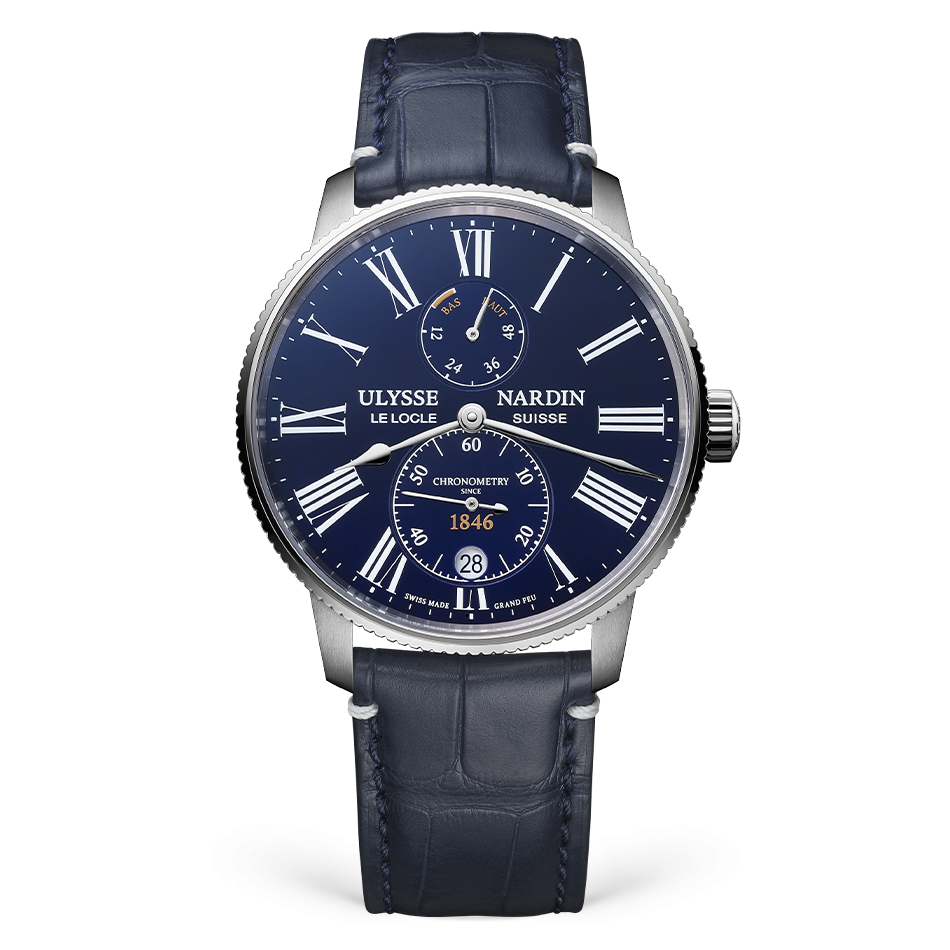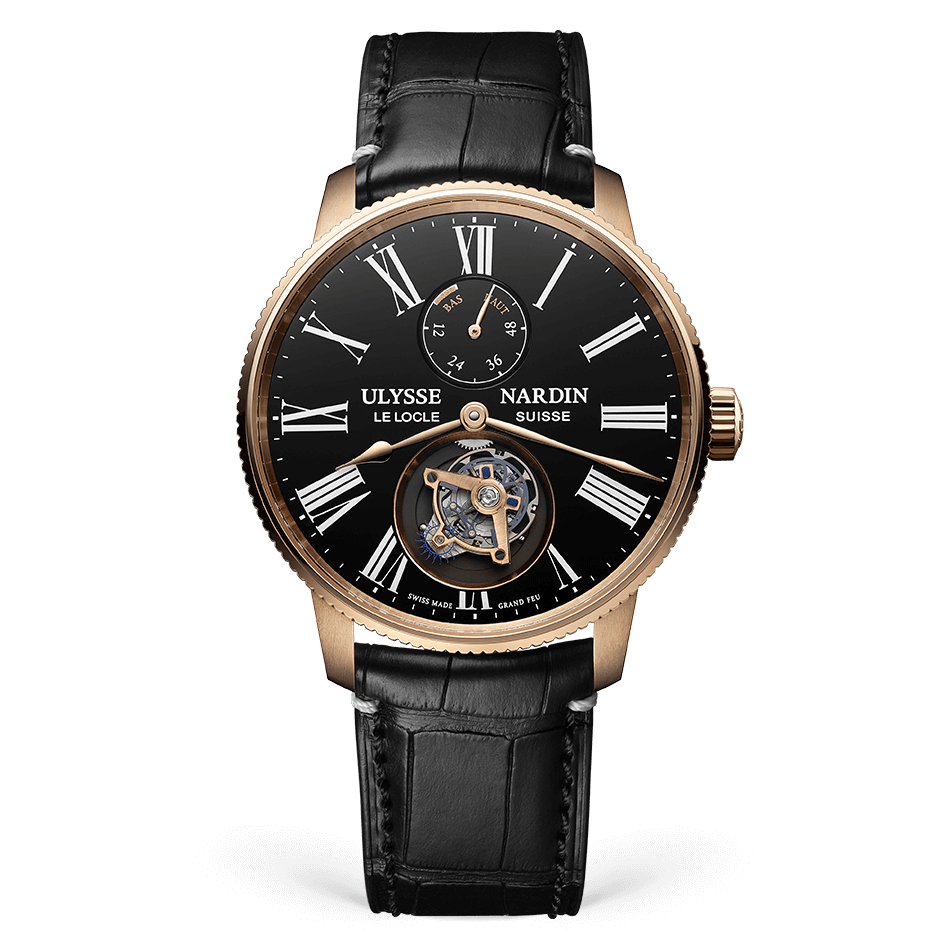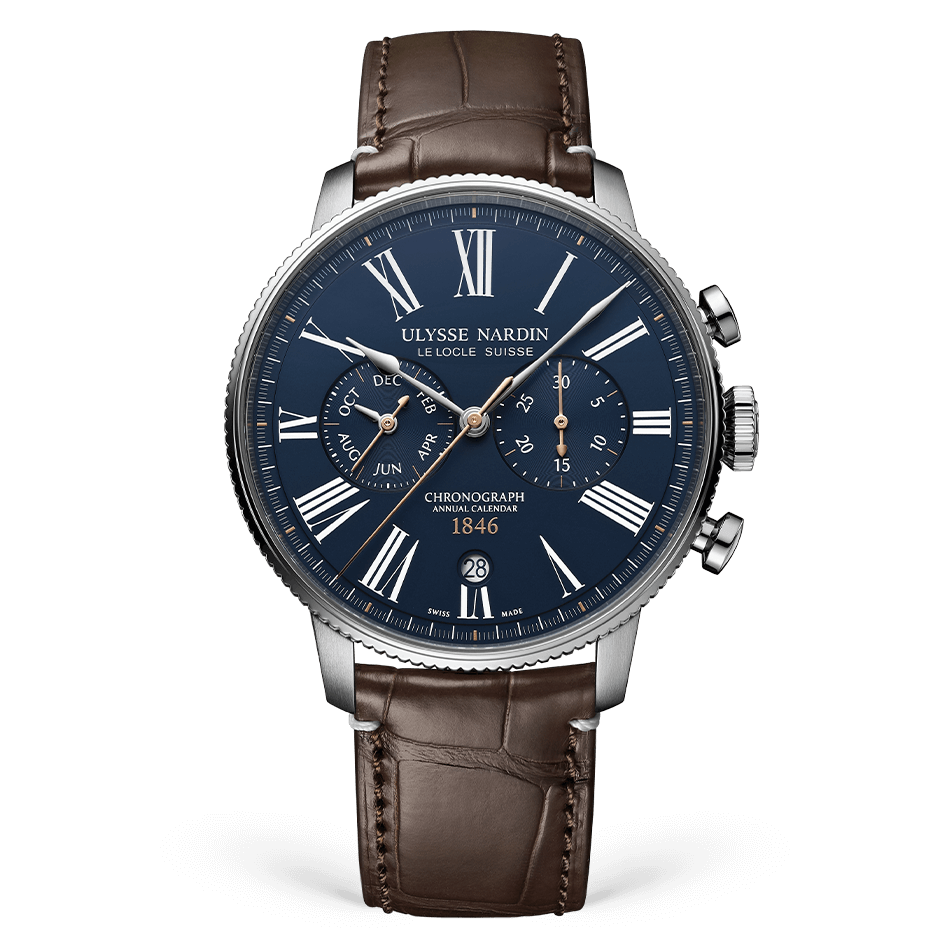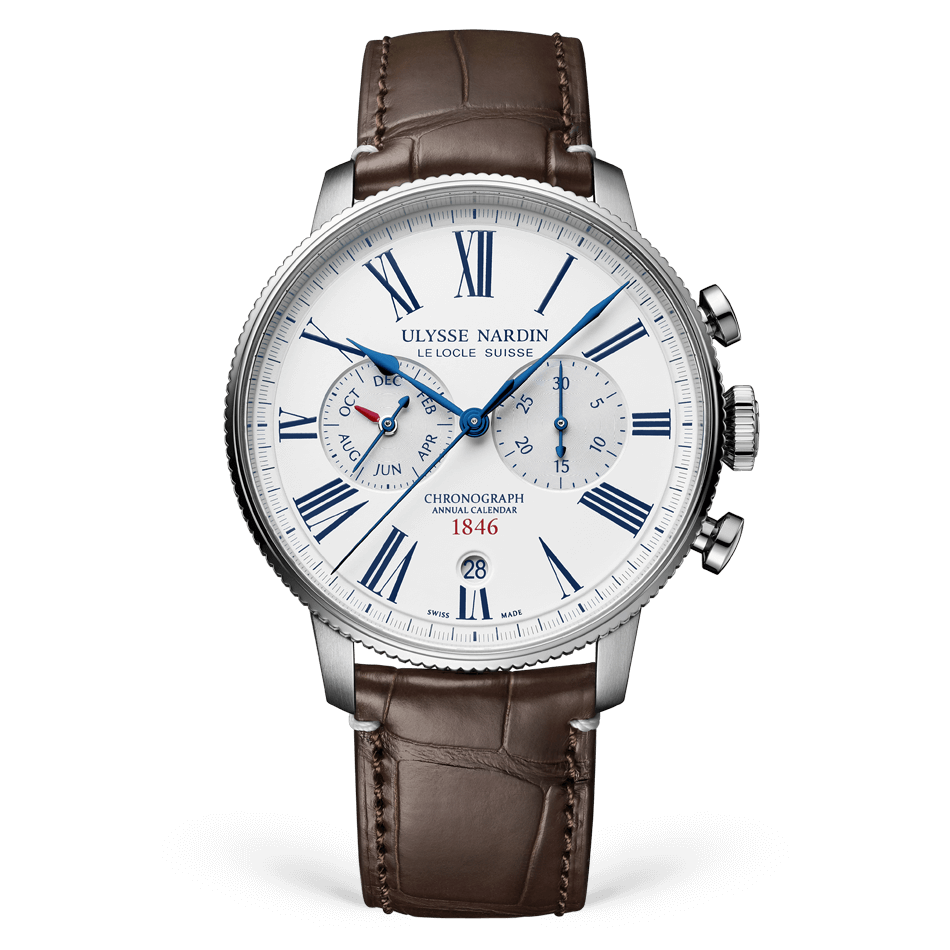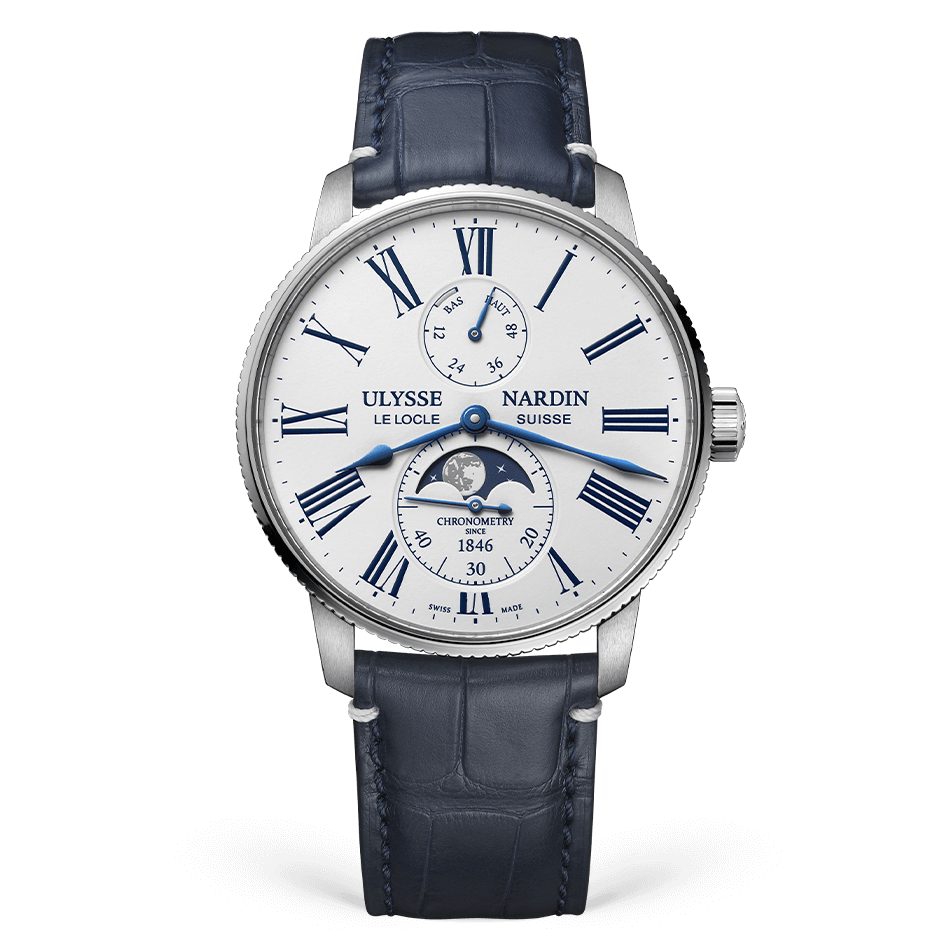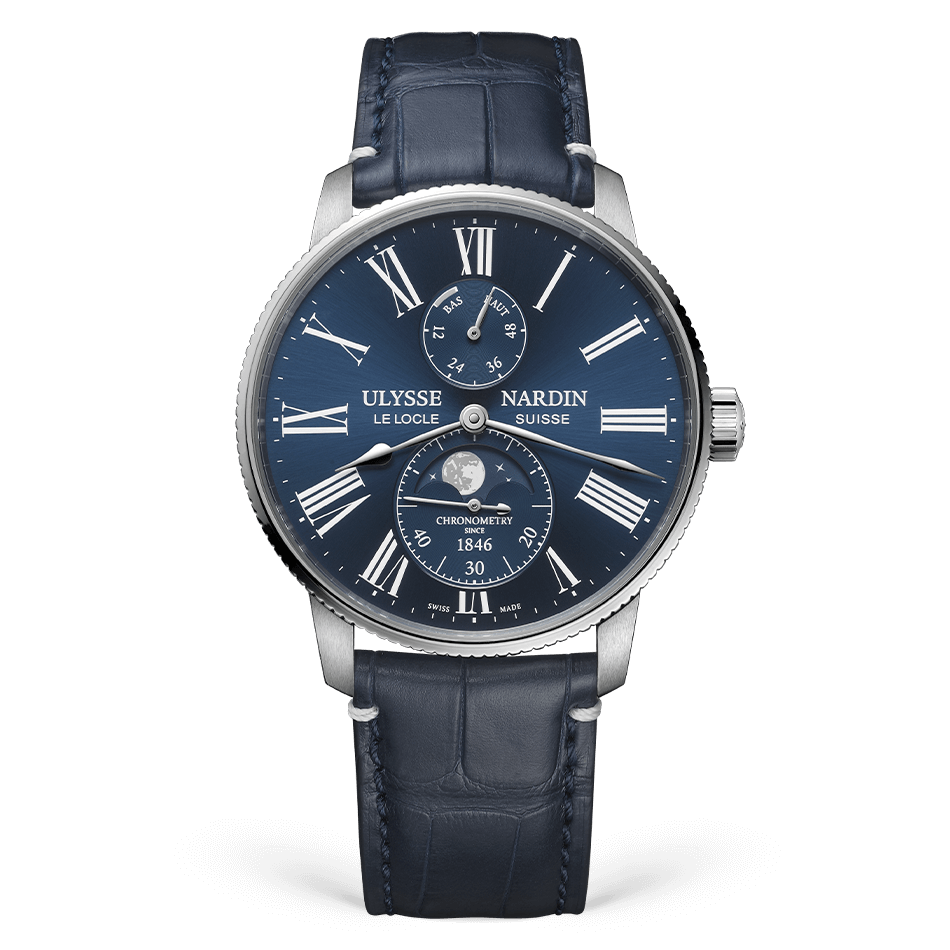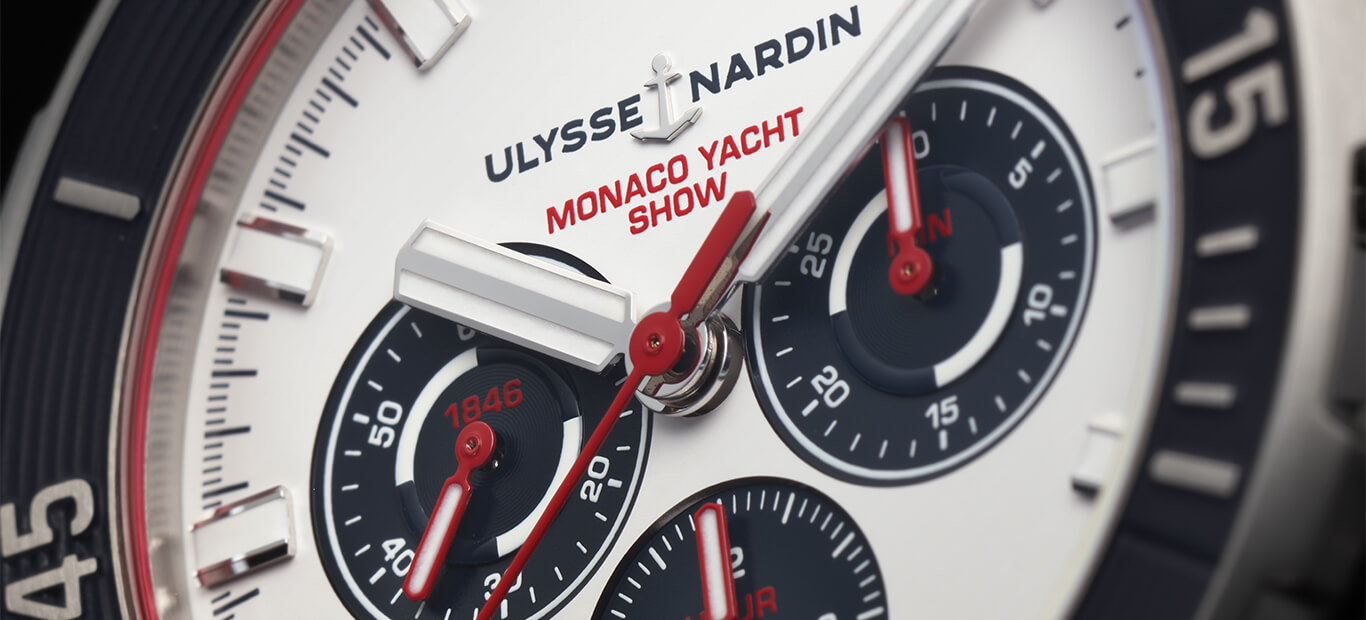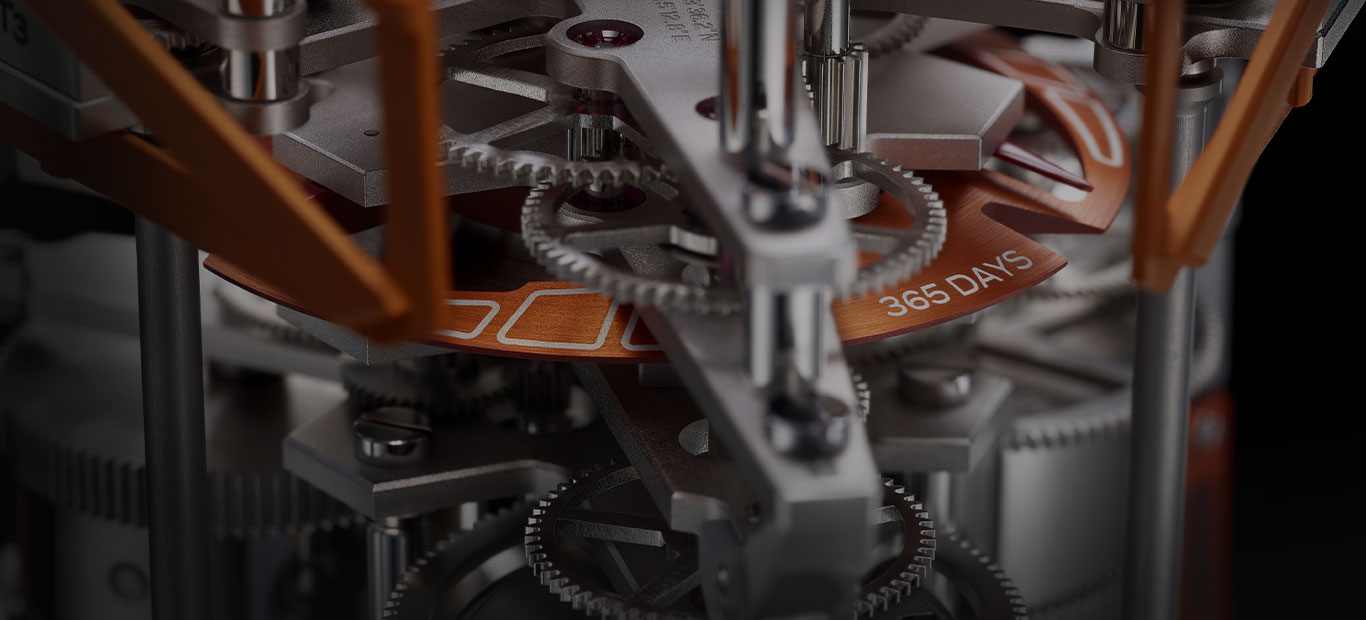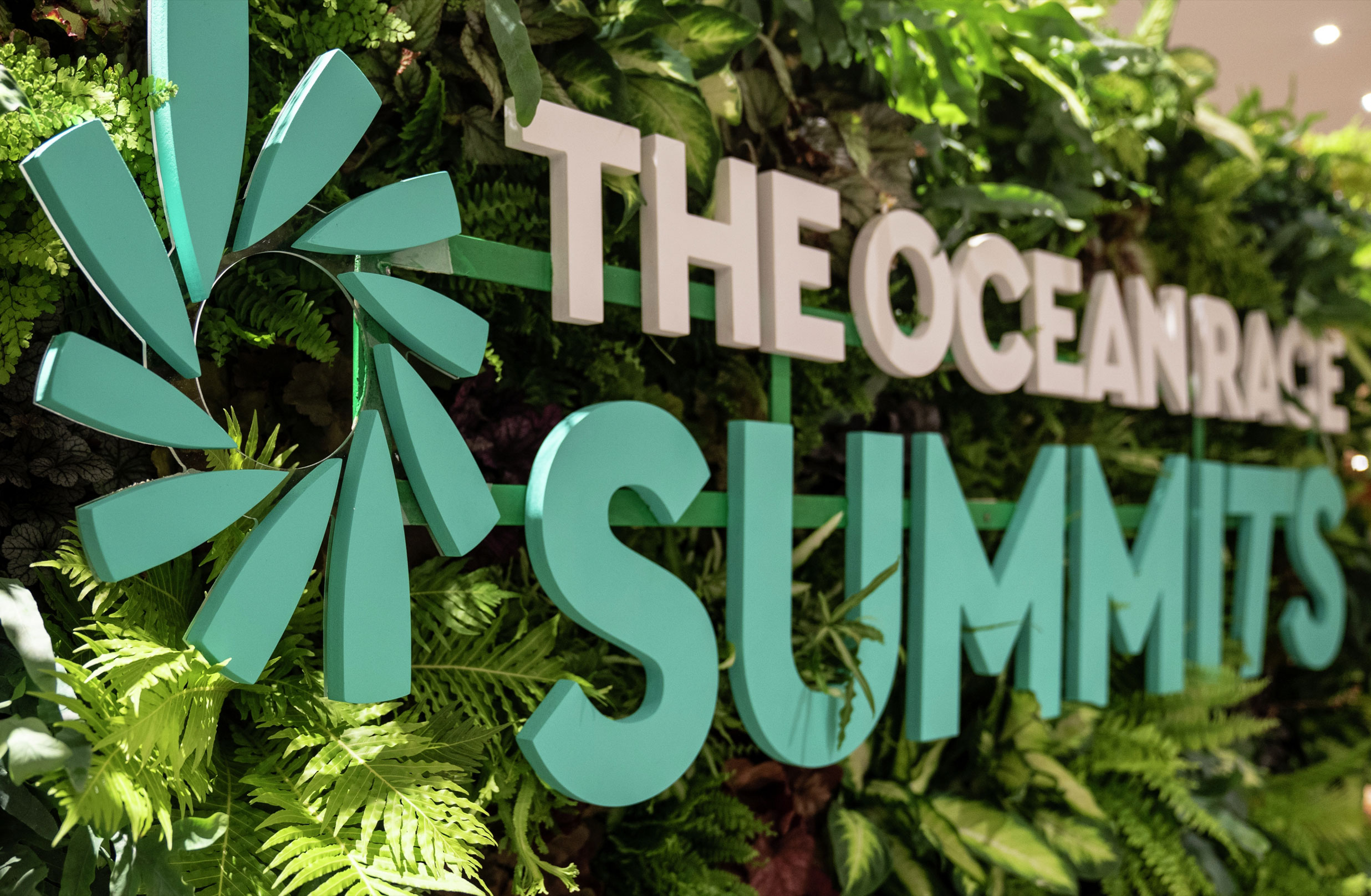Sustainable development

Watches by Ulysse Nardin meet the strict criteria of Swiss fine watchmaking and their manufacturing conditions are in line with the principles of sustainable development. Ulysse Nardin’s commitment to environmental and social responsibility is one of the key elements in the brand’s development strategy.

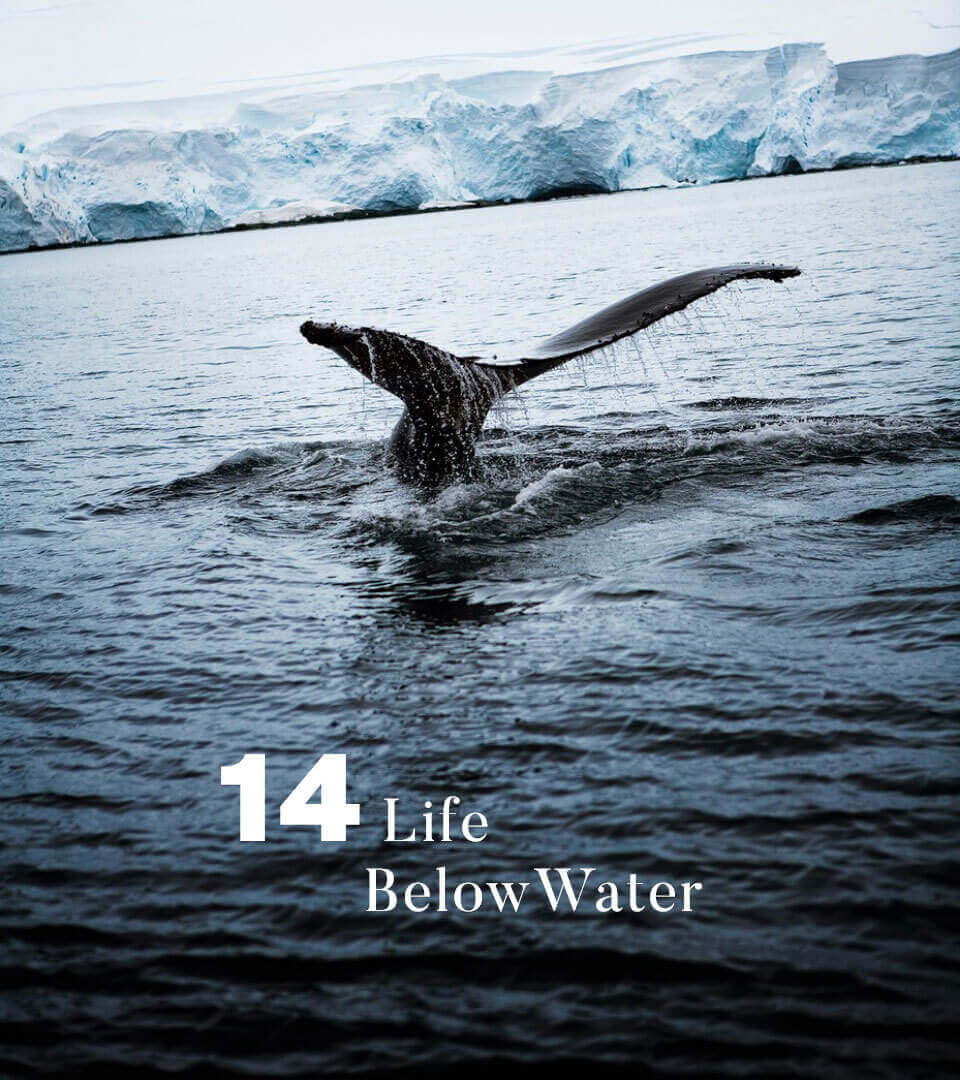
Sustainable development goals
Ulysse Nardin’s environmental commitment follows the guidelines of the United Nations and its 17 Sustainable Development Goals (SDG) – set to be achieved by 2030. The watchmaker Ulysse Nardin, which has a natural interest in the marine world, has chosen to focus its efforts on SDG 14, which determines the priority actions to be carried out to ensure sustainable management of the ocean.
In concrete terms, by finding a new outlet for fishing nets and other plastic waste, and by supporting whistleblowing scientists, explorers, sailors and sportsmen and women, Ulysse Nardin is acting for two of the priorities of SDG 14: reducing marine pollution and increasing oceanographic knowledge. As the world enters the United Nations Decade of Ocean Sciences for Sustainable Development (2021-2030), this period focusing on the ocean is a window of opportunity for initiative and commitment.
Social responsibility
Social responsibility encourages companies to pay particular attention to working conditions and – within the watchmaking industry – support the artisan crafts. Ulysse Nardin enters into this dialogue with its suppliers and offers support to help them meet the criteria set out in the Kering code of ethics.
The Kering Foundation is fighting to end violence against women. Established in 2008, the Kering Foundation commits the group to an important subject, consistent with its activities and clientele, and on which the company has a decisive role to play, alongside public authorities and associations. Like other brands in the Kering group, Ulysse Nardin develops its own social programmes in parallel with the actions of the Kering Foundation.
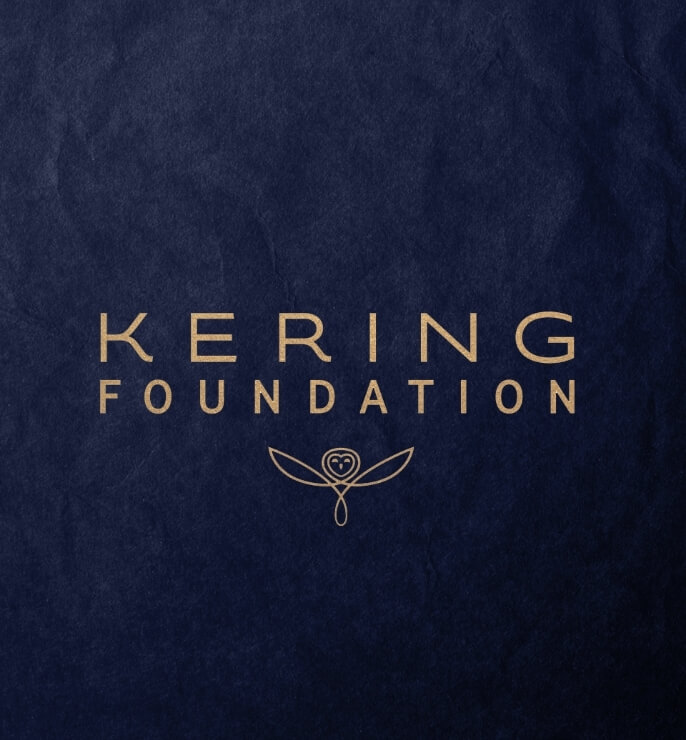
Ulysse Nardin is committed to the sustainable development policy implemented by the Kering group, which owns the Brand.
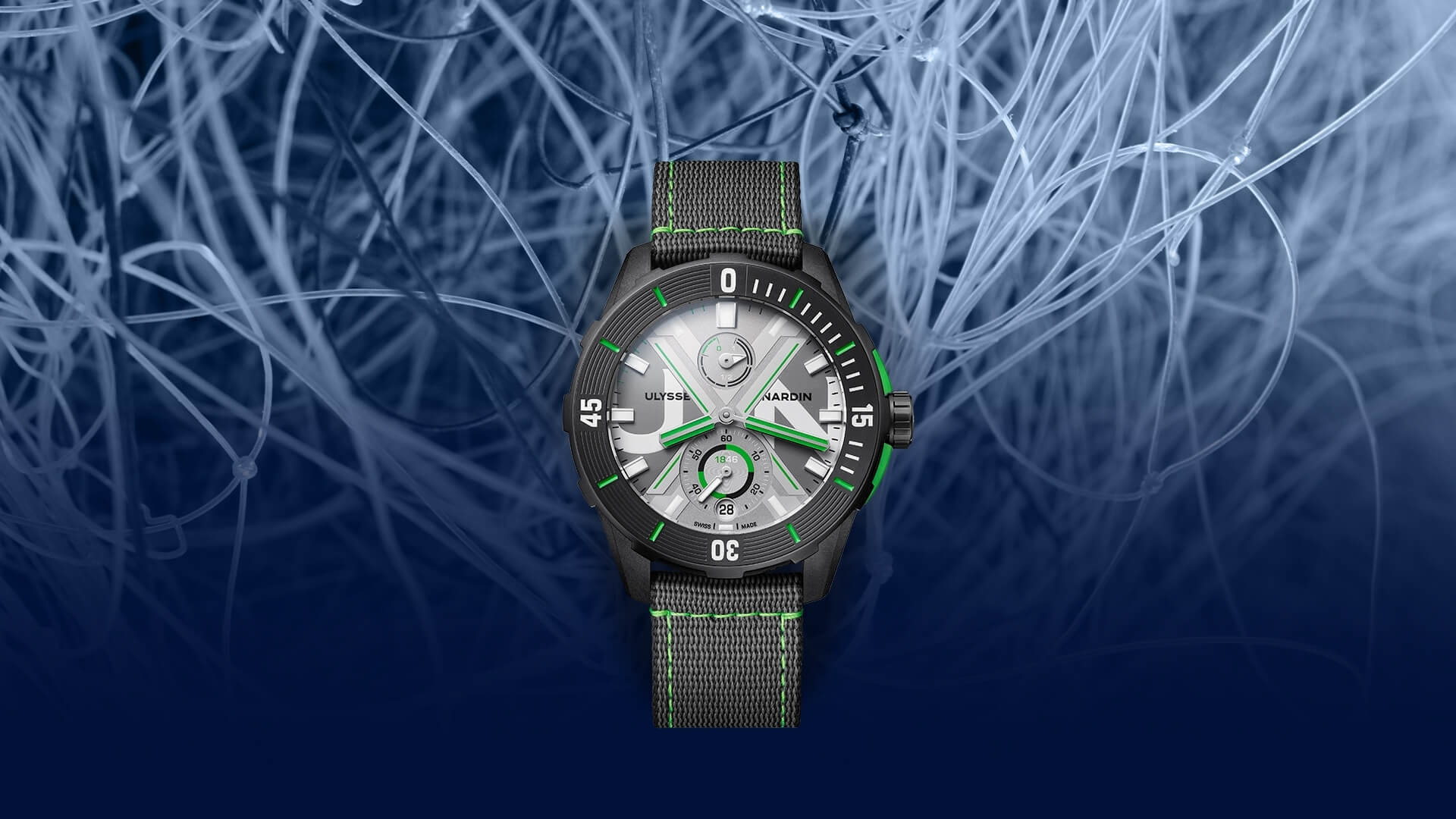
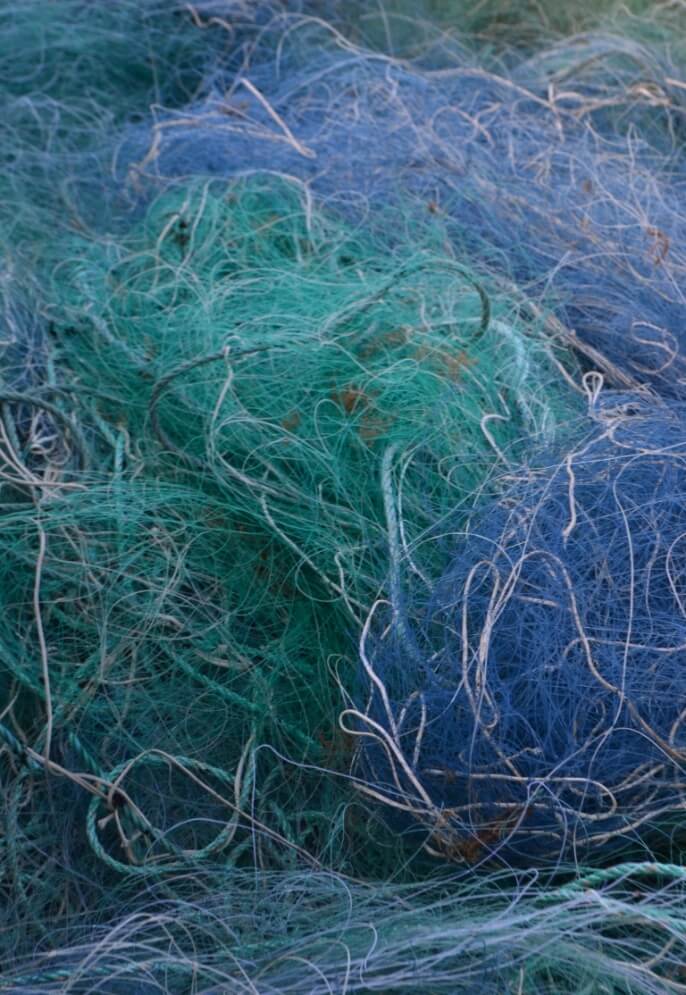
A solution to ocean plastic pollution
Nine million tonnes of plastic are discharged into the ocean every year and fishing nets are one of the main sources of this pollution. These floating objects have a limited lifespan and are too often lost or dumped at sea.
Three young Breton designers had the idea of creating the first recycling sector for fishing nets in France: FIL&FAB. Fishermen are encouraged to deposit their worn out nets in harbor dumpsters. These nets are then disassembled and only the polyamide threads, a very resistant plastic are kept. After crushing and granulation, the pellets obtained become a raw material. This recycling of an existing plastic resource is an effective argument for stopping the production of new plastic. The fight against marine pollution is a priority of SDG 14, the Sustainable Development Goal dedicated to the sea — one of the 17 SDGs set by the United Nations for 2030. By seeking an outlet for fishing nets, Ulysse Nardin is therefore acting in a concrete way to reduce marine plastic pollution.
With this upcycling approach and the development of a new material, the watchmaker is raising sustainability to the level of excellence. The DIVER NET case, middle, back and bezel decoration are fabricated from these recycled fishing nets. The strap is weaved from PET plastic found in the sea and transformed into yarn balls by the Swiss company Tide. In their effort to find solutions with a lesser impact, the Ulysse Nardin innovation team created a transparent ceramic watch glass, manufactured in the Swiss Jura.
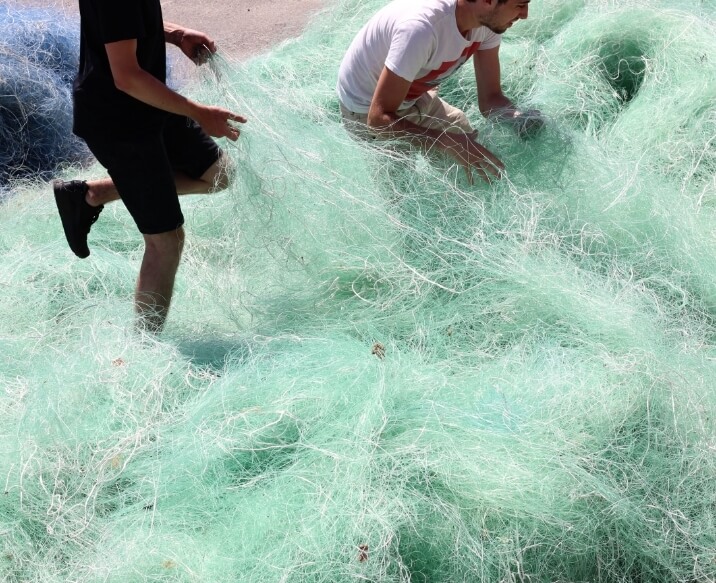
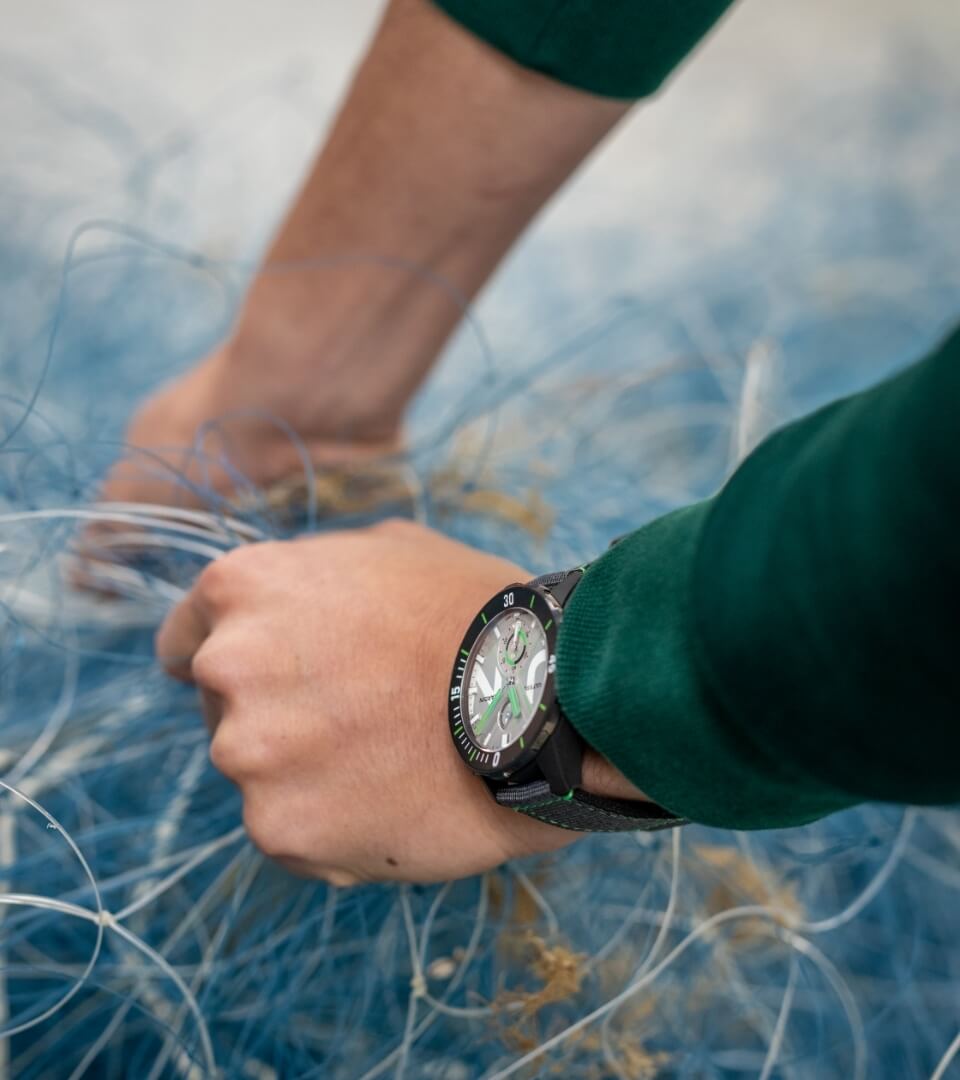
First recycled finshing net watch strap: the R-Strap
Ulysse Nardin has selected an innovative polyamide yarn fully recycled from fishing nets to weave its new wrist strap, compatible with Diver 44 mm, Diver 42 mm, Diver Chronograph, Marine Torpilleur and Freak X watches. This strap, of which Ben Lecomte is the proud ambassador, is the watchmaker’s first 100% waterproof fabric. Sturdy, it is interwoven on the edges to prevent fraying and withstand abrasion (Martindale test). The dying technique used before extrusion by the supplier JTTi for its YTT+ yarn reels (100% recycled from fishing nets) gives a uniform black color and has the non-negligible environmental advantage of not using water during production.
The Responsible Jewellery Council (RJC)
Ulysse Nardin has been a member of the Responsible Jewellery Council (RJC) since July 2019. The RJC is an international not-for-profit organisation bringing together members committed to promoting ethical, social and environmental practices carried out in a transparent and responsible manner in the watchmaking and jewellery industry, from the mines to the points of sale.
Ulysse Nardin’s future application for certification is aimed at validating its social and environmental responsibility activities and underscoring its commitment to upholding the highest ethical standards, both internally and with business partners.

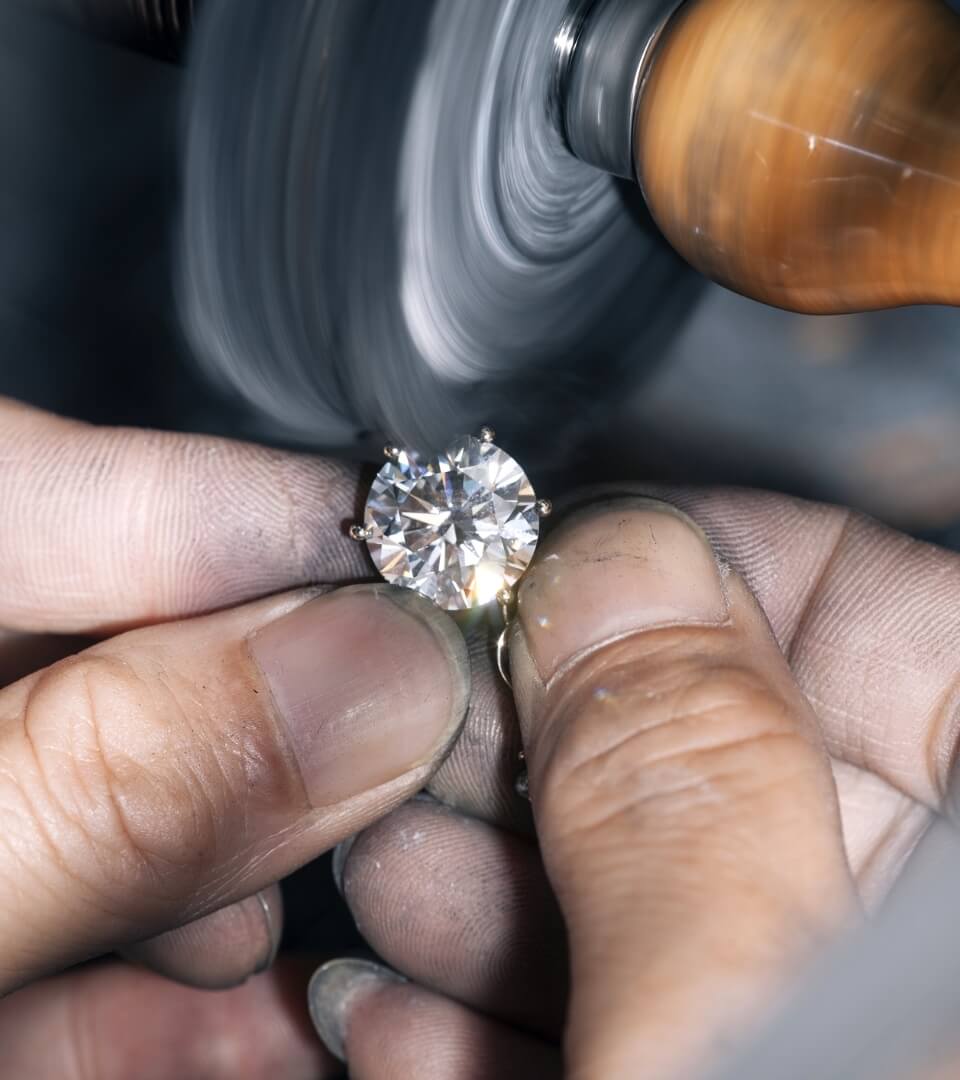
The Kimberley Process
Ulysse Nardin applies control systems arising from the Kimberley Process, which fights against 'conflict diamonds'. All the diamonds purchased by the Brand comply with the World Diamond Council System of Warranties bound up with the Kimberley Process.
The Kimberley Process places strict requirements on its member countries through official certificates, so as to check the provenance, exports and imports of rough diamonds. Once cut, diamonds are accompanied by a declaration defined by the World Diamond Council System of Warranties, which must feature on all cut diamond invoices: "The diamonds herein invoiced have been purchased from legitimate sources not involved in funding conflict and in compliance with United Nations resolutions. The seller hereby guarantees that these diamonds are conflict free, based on personal knowledge and/or written guarantees provided by the supplier of these diamonds."
Responsible gold
The Kering Responsible Gold Framework (KRGF) was developed by Kering and its brands to establish an innovative and intelligent way of sourcing gold responsibly. Its principles are aimed at achieving a sustainable, environmentally friendly supply of gold, promoting favourable working conditions for miners and supporting mining activities through a dedicated fund.
In accordance with these standards, Ulysse Nardin actively supports the ethical gold industry. Since 2017, Ulysse Nardin has procured all its gold responsibly via the KRGF, which offers a mixture of recycled Chain-of-Custody (CoC) certified gold and/or gold from certified/verified artisanal sources (Fairmined, Fairtrade or Kering certified mines).
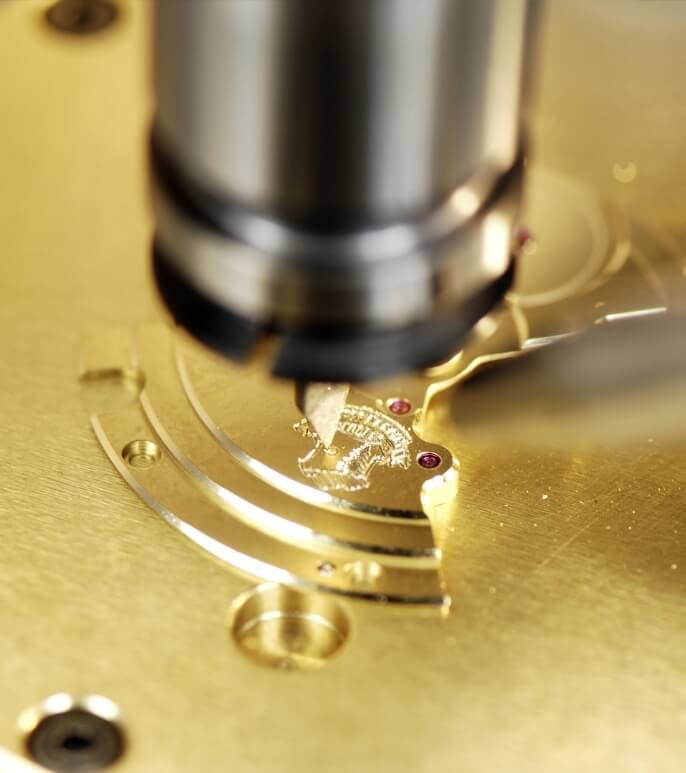
The Kering group have developed a new way to enhance the potential of their economic activity and give power to the imagination.

Environmental Profit & Loss Account
The Environmental Profit & Loss Account (EP&L) is an innovative tool that measures the environmental impacts of a company, both internally and throughout its entire supply chain, and then presents these impacts in monetary values. This approach allows for a true understanding of the global cost of its actions and places sustainable development at the heat of the company’s decisions in order to permanently reduce their impact on the environment.
Sustainable development at Kering
Find out more

